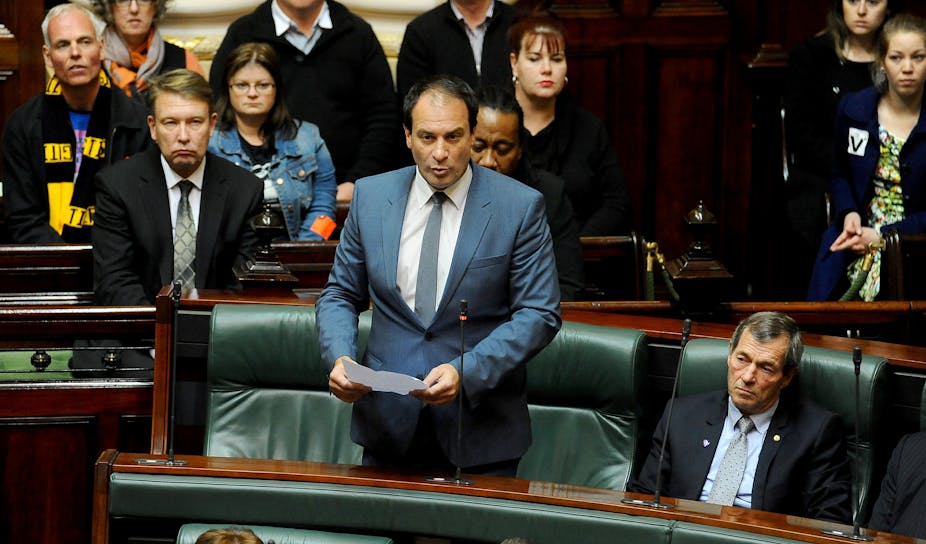Victorian premier Denis Napthine has tabled a motion that would expel independent MP Geoff Shaw from parliament merely for the apparent insincerity of his apology rather than his reprehensible misuse of parliamentary resources. However, Napthine should not take Shaw’s bait; he should show more maturity than over-reacting to provocation.
We have seen a damning report by the Ombudsman, a split Privileges Committee report, the apparent powerlessness of the Independent Broad-based Anti-corruption Commission (Victoria’s still new anti-corruption body) and a ruling by the Director of Public Prosecutions that charges were unlikely to stick in court. After all that, Napthine’s motion to expel Shaw from parliament is in response to the Frankston MP’s published comments about his apology.
Following the Privileges Committee report in May, the Victorian parliament imposed a repayment and penalty totalling almost A$7000 and demanded Shaw apologise in parliament – both resolved on Tuesday.
Shaw’s apology seemed to satisfy Napthine, his government and the Legislative Assembly as a whole. On the face of it, Napthine’s June resolution requires nothing more. Shaw was entitled to believe that his apology was all he needed do to avoid being expelled.
However, the trigger for expulsion is now the wording and perception of Shaw’s comments on his own apology, rather than the original allegations. Shaw’s reported comments – that the process was a “political farce” – can be seen as a cynical, deliberate provocation of Napthine.
The last expulsion of a Victorian MP (Edward Findley), used as a century-old precedent by the government, is irrelevant. That expulsion was a roughhouse act of political retribution against a Labour MP who had had the temerity to win a traditionally Liberal seat. He was expelled for re-publishing an Irish newspaper article offensive to the King, which had nothing to do with the Victoria or its citizens.
Napthine’s “tough man” expulsion threat now looks like a repeat of the anti-democratic tactics last used in 1901. He could be seen to have over-reacted and been just as vindictive as those who last conspired to expel a MP. This would be at odds with Napthine’s attempt to pose as a moderate, level-headed Liberal, resisting the push by the hard men of the extreme right for control of his party.
The evidence against Shaw is strong and doubtless deserved a tough penalty. However, expelling an MP because of words spoken about his own apology would be a step too far. If a much more serious breach was found in future, what higher penalty would be left for parliament to impose?
While expulsion has been used elsewhere to expel MPs, it has generally been for an offence far more serious than these original allegations, much less for merely making an apology claimed to be not “appropriate”.
Some parliaments have powerful anti-corruption bodies to deal with such cases (such as NSW’s Independent Commission against Corruption). Napthine’s government gave Victoria IBAC, which is incapable of acting in this case.
Other parliaments have adopted a far more nuanced range of sanctions for unacceptable conduct by their members. These include calling the offending member before the house to be given a humiliating and salutary reprimand or suspending the MP’s salary – or both. Expulsion is rare and usually for the most egregious offences.
For whatever reason, Napthine has failed to learn from the wisdom accumulated by other parliaments through experience and so avoid the trap he has set himself. This leaves him looking like a hothead. But he could still escape that trap with a more nuanced response to Shaw’s provocation.
Napthine has a profound responsibility to demonstrate that he respects the parliament, and to pause and reflect on the punishment for comments about the apology before leaping to another highly questionable expulsion.

